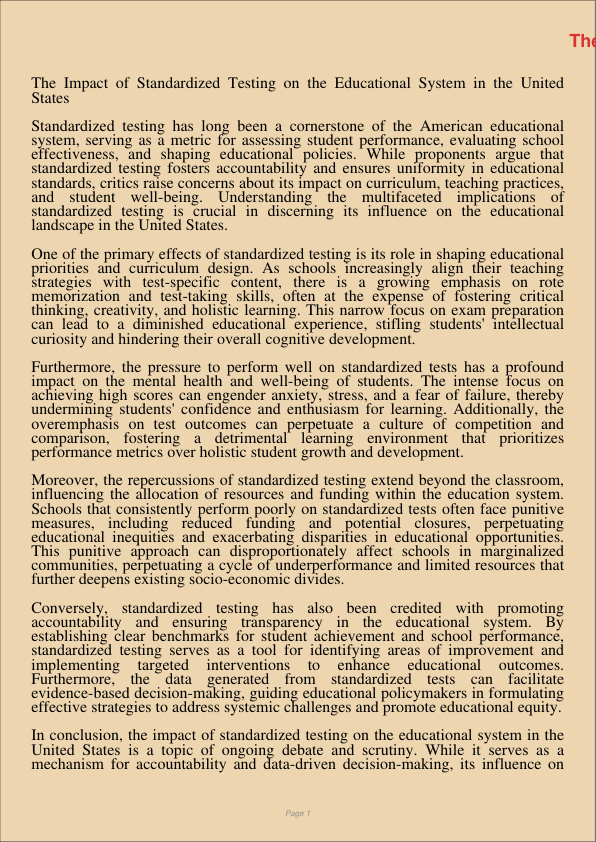The Impact of Standardized Testing on the Educational System in the United States
Standardized testing has long been a cornerstone of the American educational system, serving as a metric for assessing student performance, evaluating school effectiveness, and shaping educational policies. While proponents argue that standardized testing fosters accountability and ensures uniformity in educational standards, critics raise concerns about its impact on curriculum, teaching practices, and student well-being. Understanding the multifaceted implications of standardized testing is crucial in discerning its influence on the educational landscape in the United States.
One of the primary effects of standardized testing is its role in shaping educational priorities and curriculum design. As schools increasingly align their teaching strategies with test-specific content, there is a growing emphasis on rote memorization and test-taking skills, often at the expense of fostering critical thinking, creativity, and holistic learning. This narrow focus on exam preparation can lead to a diminished educational experience, stifling students’ intellectual curiosity and hindering their overall cognitive development.
Furthermore, the pressure to perform well on standardized tests has a profound impact on the mental health and well-being of students. The intense focus on achieving high scores can engender anxiety, stress, and a fear of failure, thereby undermining students’ confidence and enthusiasm for learning. Additionally, the overemphasis on test outcomes can perpetuate a culture of competition and comparison, fostering a detrimental learning environment that prioritizes performance metrics over holistic student growth and development.
Moreover, the repercussions of standardized testing extend beyond the classroom, influencing the allocation of resources and funding within the education system. Schools that consistently perform poorly on standardized tests often face punitive measures, including reduced funding and potential closures, perpetuating educational inequities and exacerbating disparities in educational opportunities. This punitive approach can disproportionately affect schools in marginalized communities, perpetuating a cycle of underperformance and limited resources that further deepens existing socio-economic divides.
Conversely, standardized testing has also been credited with promoting accountability and ensuring transparency in the educational system. By establishing clear benchmarks for student achievement and school performance, standardized testing serves as a tool for identifying areas of improvement and implementing targeted interventions to enhance educational outcomes. Furthermore, the data generated from standardized tests can facilitate evidence-based decision-making, guiding educational policymakers in formulating effective strategies to address systemic challenges and promote educational equity.
In conclusion, the impact of standardized testing on the educational system in the United States is a topic of ongoing debate and scrutiny. While it serves as a mechanism for accountability and data-driven decision-making, its influence on curriculum design, student well-being, and resource allocation raises significant concerns about its efficacy and long-term implications. Striking a balance between the need for standardized assessments and the imperative to nurture a comprehensive, student-centric learning environment remains a critical challenge facing the American educational system. Emphasizing a holistic approach to assessment, inclusive of diverse learning styles and comprehensive educational objectives, is essential in fostering a dynamic and equitable educational landscape that prioritizes the well-being and holistic development of all students.

「真诚赞赏,手留余香」
真诚赞赏,手留余香
使用微信扫描二维码完成支付
